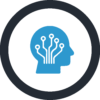Data Science and Intelligent Systems
 Concepts and techniques from data science and intelligent computing are being rapidly integrated into many areas of Electrical and Computer Engineering (ECE), in particular by exploiting new developments in machine learning. Areas such as computer and robot vision, computational imaging, and biometric recognition greatly benefit from recent advances in deep learning. Computational biology and computational neuroscience rely on advanced data science methods to process the vast amounts of information produced by novel sensing modalities, with the ultimate goal of delivering personalized medicine. Transportation and energy networks, as well as the emerging Internet of Things (IoT) infrastructure, heavily rely on intelligent, distributed computing to manage various forms of congestion and other anomalies. To support such intensive data processing, specialized hardware, software, and computer architecture are essential. Research activities in Data Science and Intelligent Systems span a wide range of topics, and also complement and enhance the ECE Department’s synergies with the Division of Systems Engineering, the Hariri Institute, and the Faculty of Computing and Data Sciences. A vibrant organizational unit in this research area is the Information and Data Sciences (IDS) group, which brings together faculty and students with interests in the sensing, communicating, and processing of various forms of information. We invite you to explore our research activities, meet our teams, and read about our success stories by visiting the faculty, lab and research center pages below.
Concepts and techniques from data science and intelligent computing are being rapidly integrated into many areas of Electrical and Computer Engineering (ECE), in particular by exploiting new developments in machine learning. Areas such as computer and robot vision, computational imaging, and biometric recognition greatly benefit from recent advances in deep learning. Computational biology and computational neuroscience rely on advanced data science methods to process the vast amounts of information produced by novel sensing modalities, with the ultimate goal of delivering personalized medicine. Transportation and energy networks, as well as the emerging Internet of Things (IoT) infrastructure, heavily rely on intelligent, distributed computing to manage various forms of congestion and other anomalies. To support such intensive data processing, specialized hardware, software, and computer architecture are essential. Research activities in Data Science and Intelligent Systems span a wide range of topics, and also complement and enhance the ECE Department’s synergies with the Division of Systems Engineering, the Hariri Institute, and the Faculty of Computing and Data Sciences. A vibrant organizational unit in this research area is the Information and Data Sciences (IDS) group, which brings together faculty and students with interests in the sensing, communicating, and processing of various forms of information. We invite you to explore our research activities, meet our teams, and read about our success stories by visiting the faculty, lab and research center pages below.
Affiliated Faculty
John Baillieul, Kayhan Batmanghelich, Calin Belta, Margrit Betke, Christos Cassandras, David Castañón, Ashok Cutkosky, Emiliano Dall’Anese, Robert M. Gray, Prakash Ishwar, Ajay Joshi, W. Clem Karl, Janusz Konrad, Brian Kulis, Wenchao Li, Thomas Little, Hamid Nawab, Bobak Nazer, Eshed Ohn-Bar, Alex Olshevsky, Ioannis Paschalidis, Venkatesh Saligrama, Stan Sclaroff, Archana Venkataraman, Tianyu Wang
Affiliated Labs
- AI Photonics Lab
- Control of Discrete Event Systems
- Data Science and Machine Learning
- Dependable Computing
- Integrated Circuits, Architecture, and Systems
- Machine Learning, Information and Data Sciences
- Multimedia Communications
- Network Optimization and Control
- Neural Systems Analysis Laboratory
- Visual Information Processing
Affiliated Research Centers
- Center for Computational Science
- Center for Information and Systems Engineering
- Computational Neuroscience
- Data Science Initiative
- Division of Systems Engineering
- Lighting Enabled Systems and Applications NSF ERC
- Rafik B. Hariri Institute for Computing and Computational Science & Engineering
- Rajen Kilachand Center for Integrated Life Sciences & Engineering
- Robotics & Autonomous Systems Teaching Innovation Center
In the news:
-
January 27, 2026
From Selfish Driving to Social Optimality
In a recent Nature report, titled “Smart cities drive into the future,” Christos Cassandras was interviewed and shared his proposal for a networked environment in which every vehicle shares data with another vehicle or a coordinator regarding position, velocity, and destination to optimize routing across the entire city. [ More ]
-
January 27, 2026
Envisioning an Imperfect World
New ECE Professor Harry Chao’s Approach to Machine Learning Meets Reality Where It Is by A.J. Kleber Outside the tidy binaries of digital computation, the world is a messy place. Few things in life are clearly observable and predictable, whether you’re looking at individual human behavior, traffic, organisms, or the weather. This... [ More ]
-
October 15, 2025
Seven ENG Faculty Honored for Real-World Impact Research
The annual Ignition Awards honor innovative BU projects that are ready to make the move toward commercialization, from the research phase to consumer use. Given by BU Technology Development within the University’s Office of Research, the awards come with financial backing, as well as a dedicated advisory committee to provide expertise, [ More ]
-
October 14, 2025
Illuminating Energy-Efficient AI
Supported by a $1.5M NSF grant, Professor Ajay Joshi is exploring the development of novel electro-photonic computing architectures that could perform as well or better than conventional electronic GPUs. [ More ]
-
September 25, 2025
Controlling for Uncertainty
With the support of a $380K grant from the NSF, Professor Emiliano Dall’Anese is working to design the novel optimization methods required for complex energy infrastructures under increasingly volatile user behavior. [ More ]